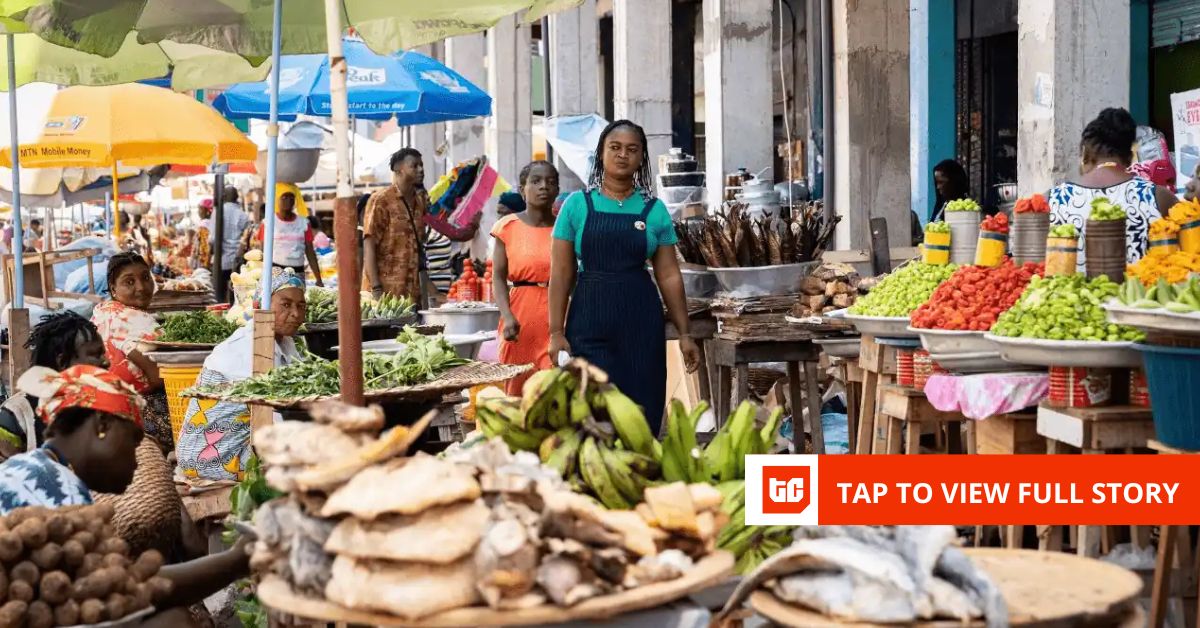Victor Daniyan is standing on a stage sweating profusely. Though Morocco is usually humid around this time of the year, the hall is well air conditioned. He briefly locks eyes with one of the stern-faced panel of judges—most of them are experienced founders who have exited successful startups, and there’s one director of investments at a corporate venture firm present.
He barely holds the judge’s gaze for five seconds before he looks away. He has just finished pitching his product, Nearpays, to a room brimming with experience in the business hemisphere.
These were men who could take any inexperienced founder from zero to everything. Daniyan anticipated there would be hesitation; he dreaded it. He closed his eyes and waited for judgement. If he went back to Nigeria, he was going to keep building Nearpays like he’d done in the past two years—with pure grit and out of his pocket. But even his cynical side still prayed for one maybe that could turn into a yes in the future.
Building a contactless payment solution is expensive; more so, he was building a hybrid approach that catered to marginalised users in Nigeria—a compatible hardware device that works with mobile smartphones, allowing merchants to accept card payments; as well as a software point-of-sale (softPOS) that is NFC-enabled.
Of course, he needed the money. He’d bootstrapped his startup for two years without any return on his savings. It wasn’t until last year that his venture started generating traction. With this traction, he had jetted off to Plug and Play’s closed-door gathering with investors, hoping to pitch what he thinks can be as big as Visa.
Except, sadly, this pitch never happened.
Instead, Victor Daniyan, CEO of Nearpays, was stuck at the airport, unable to travel to an event he’d eagerly prepared for. He had the opportunity of a lifetime to attract investor interest in Nearpays. But here he was, sitting at the airport, watching as time went by quickly. Daniyan was unable to travel due to a visa delay, which upended his fortunes that day.
This is one of many stories about the systemic travel bottlenecks that plague African founders, especially first-time founders seeking funding. On one hand, they’re dealing with issues that prevent them from accessing funding opportunities. On the other hand, the problems are more… artificially created.
Can I trust you?
To first-time, early-stage founders in Africa, trust is not a given. It has to be earned—and geography, unfortunately, plays a massive role in whether or not it’s granted.
Uzochukwu Mbamalu, CEO of Palremit, a one-year old Nigerian fintech startup which has raised $200,000, experienced this first-hand.
“I travelled to Kenya once,” said Mbamalu. “There was this guy from Manchester who was very interested in knowing what I was building. The moment I mentioned Nigeria, that was the end of the conversation.”
Mbamalu now lives and operates from Europe, where he believes proximity, perception, and presentation impact trust-building.
“Trust level increases, especially for people from Nigeria when they travel out. They tend to raise money at that point. The business, especially if you’re starting out, is actually tied to them as the founder.”
He explains the logic investors often use: if the founder is in Nigeria, the risk is higher; the founder could disappear, for example. The infrastructure might collapse, so there’s no better way to remain in the know of the business when they’re miles away with no boots on the ground.
It’s also likely a local perception problem, coupled with the lack of experience, Mbamalu said. He asserts, however, that more experienced founders do not face this problem.
“For an experienced founder who’s known in the ecosystem, there are more metrics to judge and lead due diligence with, even from founder history and character perspective to business-fit assessment,” he said.
As a first-time founder, travelling abroad for him was a psychological move to signal to investors that his experiences are global. “If a founder says, ‘I live in Paris’—or elsewhere, the room relaxes because they can relate to that,” Mbamalu said.
For Daniyan who has tried locally to raise funds for Nearpays before he took his search abroad, he says there’s a lack of trust, accountability, and possibly, conviction from regional investors.
“I’ve worked with a Nigerian VC for 15 months. They never told me yes or no. They kept asking for updates. It was exhausting.”
That inertia has long-term consequences. When local funding is elusive, founders are pushed to build for foreign validation.
Founder Investor mode
The geography scrutiny that first-time, early-stage founders face is one thing, but foreign investors—when they do come onboard—sometimes come with more complexities due to a lack of local context which can negatively impact a startup’s operations.
One of the common trends in the ecosystem is the shuffle to Delaware, where African startups register their companies in Delaware, US to attract international investors and simplify legal processes. It’s a move that makes them more “investable” on paper, even though their customers are in Africa.
This attempt to create a global perception to gain more access to funding opportunities can, however, become problematic for startup founders who lack legal experience operating outside their home markets, straining resources as they go through costly trial and error.
Daniyan has raised funding from Plug and Play Tech Centre, which partners with Visa, the payments giant company. He declined to disclose the seed amount. While his entry into the investor’s portfolio was a win, it came with structural expectations.
“We had to create a Delaware LLC,” Daniyan said. “We made the US the headquarter of the organisation, while other locations (Nigeria and Ghana) were subsidiaries. We have a structure where the institution in the US handles everything, and the Nigerian business—our primary market—is just a dummy head. I pay US taxes, even though we’re serving an African market,” said Daniyan.
Creating a Delaware C-corporation in January cost Daniyan about $3,000. Aside from the financial strain this could cost early-stage startups only starting to generate traction, it also shrinks their budgets that would’ve otherwise gone to operational expenses, putting pressure on them.
“Let’s say they invest $500,000—out of empathy, even. After a few years, that money returns to them with interest. It goes back to the United States. That’s some value generated in Nigeria leaving the country. If it were a local VC, that money would stay in circulation here. It’s like they give us ₦50, for example, we turn it into ₦150, they convert it to dollars, take it back there, and grow their own economy,” said Daniyan.
Yet, Daniyan does not discredit the value that investor networks and foreign players bring to startups like his.
“VCs like Plug and Play do more than just invest. They help you refine your product, connect you with the foreign markets they’re familiar with, and even introduce you to partners like Visa. We’re currently trying some of [Visa’s] services into our product,” he shared.
Mbamalu, too, has faced his own fair share of meddling. Upon the suggestion of his advisors, his startup has been trying to expand into more countries by supporting more currencies in its fintech app—increasing its brand’s ‘global perception’ while setting itself up for a cross-border payments play.
“In all our public releases and everywhere else, we always say we are building for the ‘Global South’ instead of just Africa,” he said.
It’s a small branding shift, but from an operational perspective, it’s how the startup communicates success internally.
In search of greener pastures
The founder exodus isn’t just financial. They’re also physical. Founders are moving, sometimes permanently, to places where they can build their networks and strengthen their relationships with investors.
“I got my first seed funding because I traveled to Dubai,” said Mbamalu. “If I had not travelled, I wouldn’t have gotten the first investment that actually kick-started our growth.”
Today, he lives in Europe, managing Palremit remotely. Mbamalu operates with a lean team, going for experience in key departments. This helps put the startup’s operations on auto-pilot while he’s away.
But the move didn’t just ease funding; it opened up more partnership and visibility opportunities. His first investment came from a LinkedIn connection he made shortly after relocating.
Daniyan who’s currently in Nigeria, also splits his time in Rwanda, which he notes has a growing tech hub that he finds useful. The ease of travel and openness of regional markets has helped Nearpays explore East African expansions.
“If I had stayed blind in Nigeria, I wouldn’t understand what the East African market needs. In Nigeria, we do more transfers and recently, POS. In East Africa, they rely more on mobile money, which could use our product,” he shared.
His point is clear: You can’t build effectively for a region you’ve never seen, which is an added advantage for these early-stage startups seeking to improve their global perception. But the jury will always be out on the methods and haste some of these ventures employ, and the level of pressure they are exposed to.
There’s an opportunity for local investors with more regional context to step in. Global expansions could immensely benefit ventures, but doing so without solid entrenchment in one market before moving on to the next often leads to a loss of focus. Startups stretch themselves too thin, and their original markets could suffer from lack of attention.
While foreign investors are bringing much-needed inflows, there’s a niggling concern about how they view different paths to scale—philosophies that may not even be suited to local markets.
The ecosystem is moving toward new levels of growth, but the playing field is still uneven. Until then, founders will keep packing their bags, submitting visa applications—even if they fail—finding their way into investment networks, and rehearsing elevator pitches in hopes that somewhere, someone will believe enough to write a check.
*Editor’s note: This article is part of a Digital Nomads series, which we’re expanding to include first-time African founders in other countries. We want to explore how the founder exodus is affecting their ability to raise funding in other markets. If you’d like to share your experience, please email [email protected].










